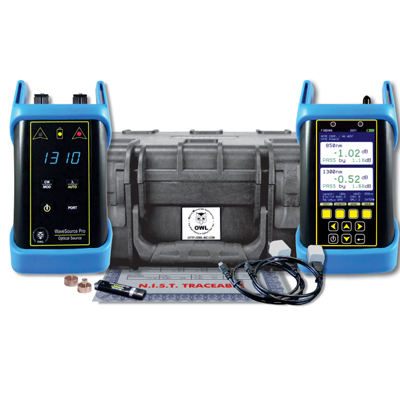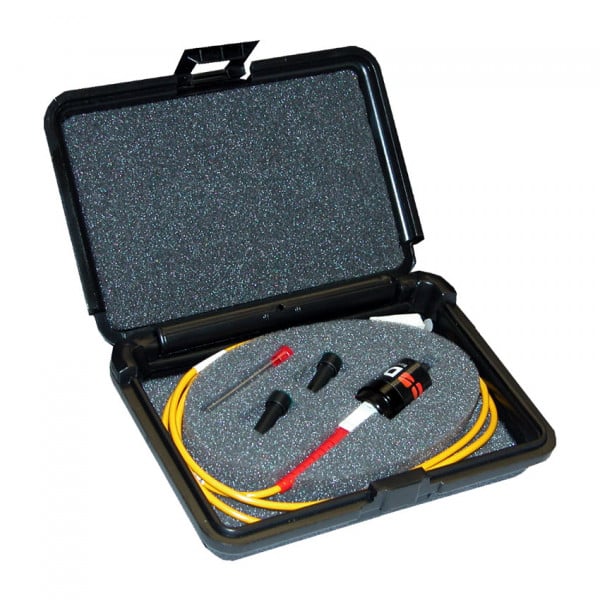Inside an optical measurement system: A detailed breakdown for industrial engineers
Inside an optical measurement system: A detailed breakdown for industrial engineers
Blog Article
A Comprehensive Overview to Optical Measurement System for Fiber Evaluation
When it pertains to fiber analysis, comprehending optical dimension systems is vital for assessing performance and ensuring high quality. You'll explore crucial methods like interferometry and spectroscopy, which aid you determine key criteria. However there's more to it than simply these methods; understanding depletion measurement methods can substantially impact your network's performance. As you navigate with this guide, you'll discover insights that could change your method to optical fiber.
Understanding Optical Measurement Solutions
When you explore optical measurement systems, you'll find they're vital for assessing fibers with precision. These systems make use of light to assess various qualities of fibers, consisting of diameter, refractive index, and uniformity. By employing strategies like interferometry and spectroscopy, you can gain valuable understandings right into the fiber's properties.You'll find that these systems are made to reduce mistakes and improve precision, guaranteeing dependable data for your evaluation. Various setups, such as single-mode and multi-mode systems, accommodate specific fiber types, permitting you to select the most effective suitable for your needs.Moreover, the combination of advanced software application devices helps you interpret the data successfully, making it easier to recognize any type of incongruities or problems. As you check out much deeper right into these measurement systems, you'll value exactly how they improve the logical procedure and boost the general quality of fiber manufacturing and testing.
Trick Parameters for Fiber Analysis
Secret criteria for fiber analysis play an essential role in determining the high quality and efficiency of optical fibers. When you examine a fiber, you'll intend to concentrate on attributes such as depletion, data transfer, and modal diffusion. Attenuation determines the loss of signal toughness as light travels through the fiber. A lower attenuation value shows much better high quality and longer transmission distances - fibre testing equipment.Bandwidth refers to the data-carrying ability of the fiber and is essential for high-speed interaction. You'll need to examine the transmission capacity to ensure it meets your application requirements. Modal diffusion, which emerges from the various rates at which light journeys with various modes in multimode fibers, impacts signal clarity
Methods for Attenuation Measurement

Data transfer and Its Influence on Efficiency
Understanding bandwidth is vital for optimizing fiber performance, as it straight influences the amount of information that can be transmitted over a network. Greater bandwidth indicates you can send even more information at the same time, permitting faster communication and much better general performance. When you're collaborating with optical fibers, it's vital to take right into account just how bandwidth interacts with fiber qualities, such as core dimension and product properties.If the transmission capacity is restricted, you may experience information loss or slower speeds, influencing your applications. In addition, different kinds of fibers can sustain differing bandwidth degrees, so it is very important to pick the right fiber for your certain needs.You need to likewise maintain in mind that ecological aspects, like temperature and outside interference, can influence transmission capacity. By recognizing these aspects, you can make educated choices to boost your fiber optic systems, guaranteeing reputable and efficient information transmission.
Refractive Index Measurement Methods

Total Interior Reflection
Complete interior representation (TIR) offers as a basic concept for determining the refractive index of fibers. When light trips from a denser medium to a less dense one, it can just be fully shown if the angle of occurrence exceeds a certain limit, recognized as the important angle. This phenomenon allows you to figure out the refractive index by assessing the angles at which light reflects or refracts. By utilizing an arrangement that guides light into a fiber and measures the resulting angles, you can determine the refractive index accurately. Recognizing TIR not only improves your fiber evaluation but also improves the layout and performance of optical systems. Leveraging TIR can lead to much more efficient fiber-based applications.
Interferometric Techniques
Structure on the concepts of overall internal representation, interferometric strategies offer an effective methods for determining the refractive index of fibers with high precision. These approaches exploit the disturbance patterns developed when beams split and recombine after taking a trip different paths. You can make use of configurations like the Michelson or Mach-Zehnder interferometer to analyze phase changes triggered by changes in refractive index. By thoroughly calibrating your system and evaluating the resulting edges, you can determine the refractive index with amazing precision. It's critical to preserve secure environmental problems to decrease errors. With these techniques, you'll enhance your understanding of fiber residential properties, resulting in better efficiency in numerous applications, from telecoms to sensor innovation.
Modal Diffusion and Its Value
Modal dispersion refers to the dispersing of light pulses as they take a trip with a fiber, which can impact the total efficiency of the system. You'll see that this sensation can cause signify distortion, impacting data transmission rates and high quality. Recognizing its significance is necessary for maximizing fiber optic layouts.
Meaning of Modal Dispersion
In fiber optics interactions, modal diffusion over here plays a significant function in establishing signal top quality and transmission rate. It happens when different light modes take a trip at varying rates with the fiber. Given that each setting has distinctive paths and features, they can reach the obtaining end at various times. This time difference can result in signify spreading and distortion, which can deteriorate the overall performance of the interaction system. You could encounter modal dispersion primarily in multimode fibers, where the multiple paths of light intensify the concern. Recognizing modal diffusion is crucial for maximizing fiber designs and guaranteeing that your interaction systems run efficiently, keeping the stability of the transmitted signals over longer distances.
Impacts on Fiber Efficiency
Understanding modal diffusion helps highlight its effects on fiber performance. This sensation takes place when various modes of light traveling at differing rates within the fiber, causing indicate dispersing over time. As you examine fiber optics, you'll observe that boosted modal diffusion can greatly deteriorate signal top quality, leading to lowered transmission capacity and longer transmission distances. In useful terms, this means your information can arrive altered or delayed, affecting overall communication effectiveness. To mitigate these impacts, you might consider using single-mode fibers, which lessen modal dispersion. By selecting the ideal fiber kind and recognizing exactly how modal dispersion affects efficiency, you can enhance transmission top quality and assurance trustworthy information transfer in your optical dimension systems.
Devices and Technologies for Optical Measurements
When it pertains to optical measurements, several innovative tools and technologies are at your disposal to enhance fiber analysis. You'll discover fiber optic testers, which evaluate signal top quality and performance, necessary for preserving suitable network performance. Optical time-domain reflectometers (OTDRs) are important for finding faults and measuring loss over distances, giving detailed understandings right into fiber stability. In addition, spectrometers can evaluate light ranges, assisting you recognize product residential properties and composition.Don' t neglect the relevance of imaging systems, like digital microscopes, that allow you to visually inspect fiber surfaces for issues. Likewise, take into consideration utilizing polarization analyzers to determine anxiety and strain in fibers, which is essential for comprehending their behavior under numerous problems. By leveraging these devices and technologies, you can significantly improve your fiber evaluation processes, guaranteeing reliability and high efficiency in your optical networks.
Frequently Asked Questions
What Are the Costs Associated With Optical Measurement Solutions?
The prices connected with optical measurement systems can differ substantially. You'll require to evaluate tools prices, upkeep costs, software licenses, and possible training costs. Budgeting carefully will assist you avoid unanticipated financial challenges down the line.

Just How Often Should Fiber Evaluation Be Done?
You should execute fiber evaluation on a regular basis, typically every six months or after considerable modifications in the setting (optical fibre diameter analyzer). This assures ideal efficiency and helps determine possible concerns before they affect see your system's efficiency and dependability
Can Optical Measurement Systems Be Calibrated in your home?
Yes, you can calibrate optical dimension systems in your home, yet it requires accuracy. Ensure you follow the manufacturer's guidelines, utilize appropriate calibration criteria, and ascertain your results to page assure accuracy in your dimensions.
What Industries Commonly Utilize Optical Measurement Equipments?
You'll locate optical dimension systems commonly used in sectors like telecommunications, manufacturing, medical care, and research study. They're important for quality assurance, fiber evaluation, and ensuring accurate dimensions in numerous applications, boosting effectiveness and precision throughout markets.
Exist Any Kind Of Security Worry About Optical Measurement Equipments?
Yes, there are safety worry about optical dimension systems. You must constantly put on protective eyeglasses to secure your eyes from intense lights and guarantee appropriate training to deal with equipment safely and avoid accidents.
Report this page